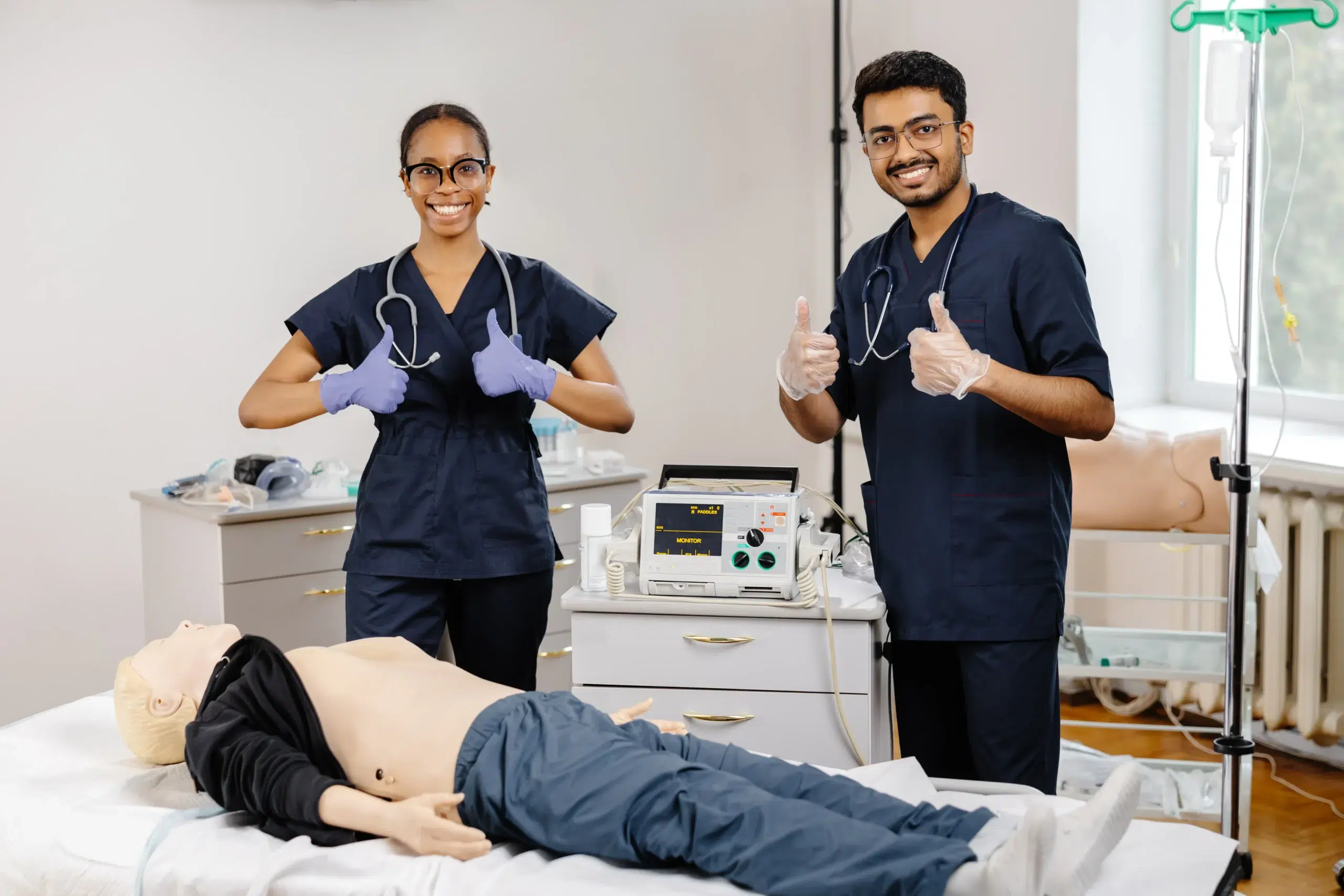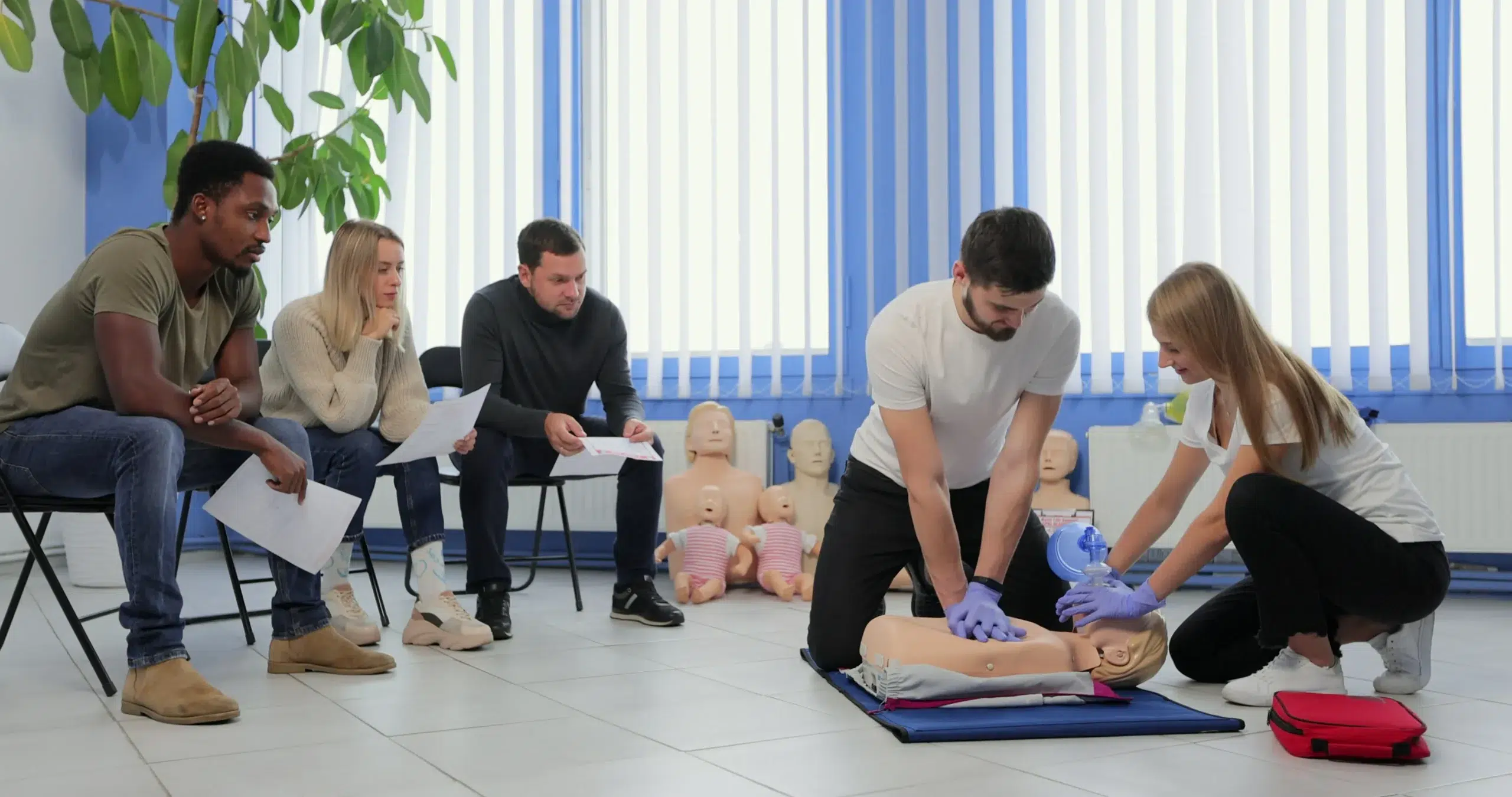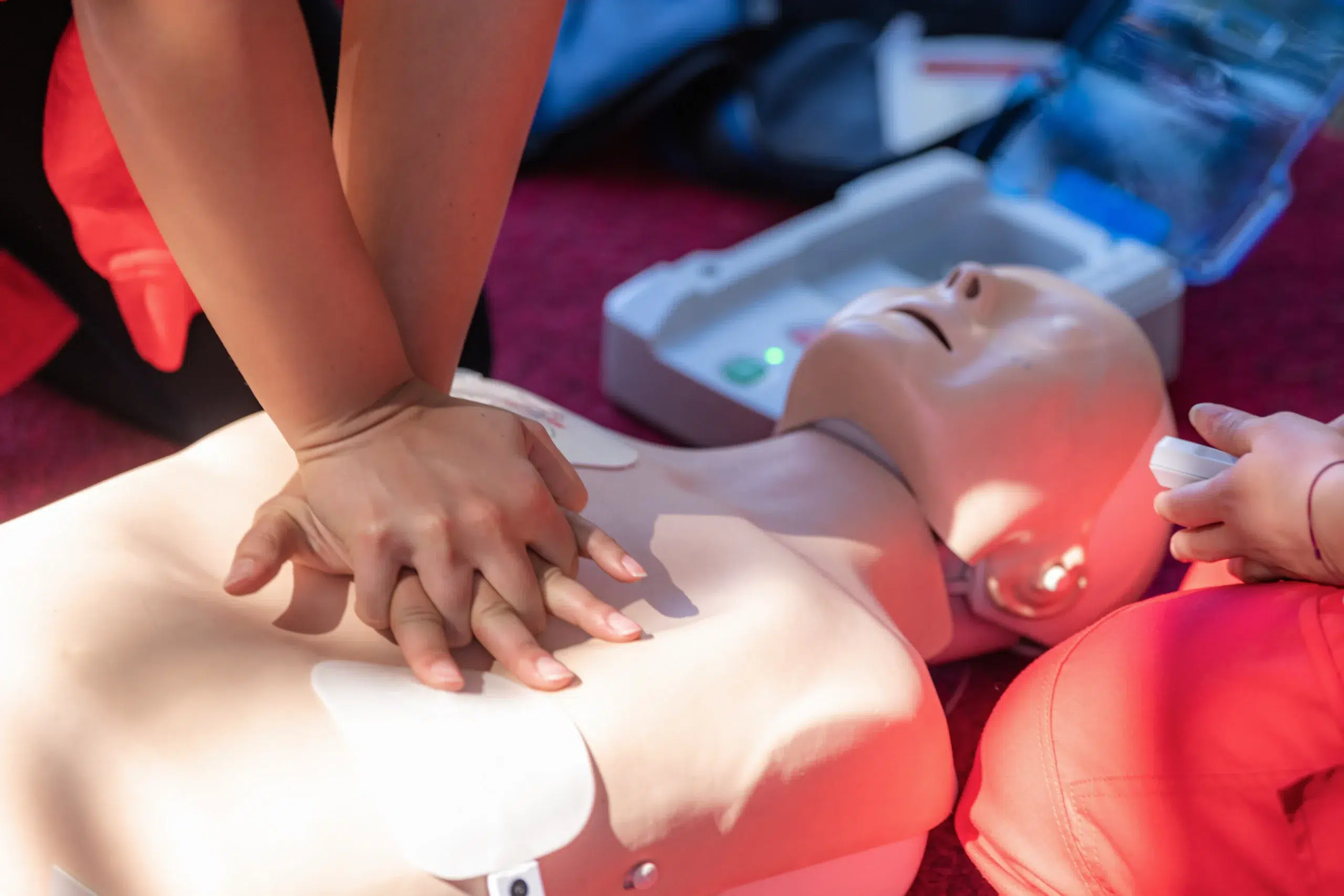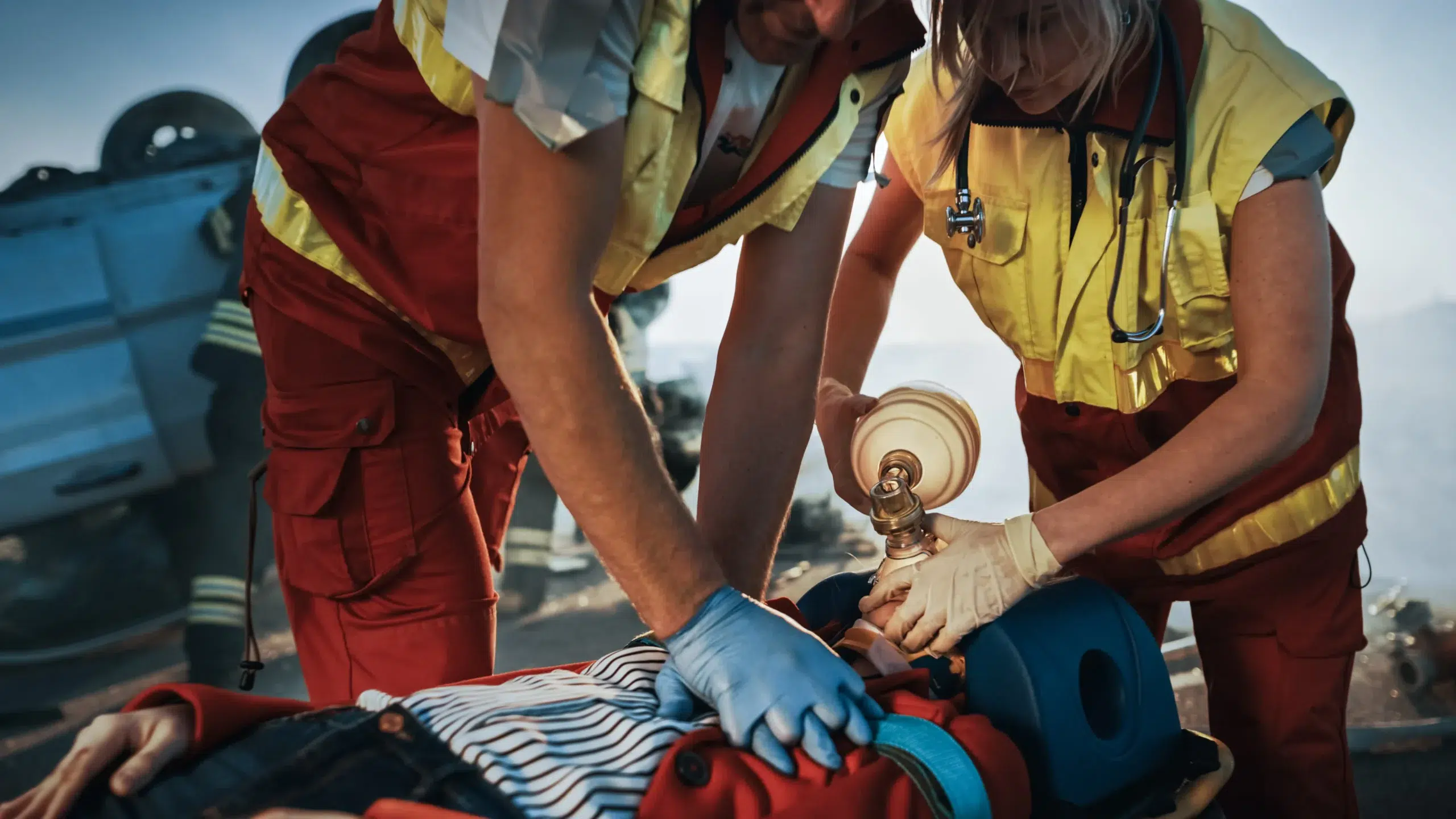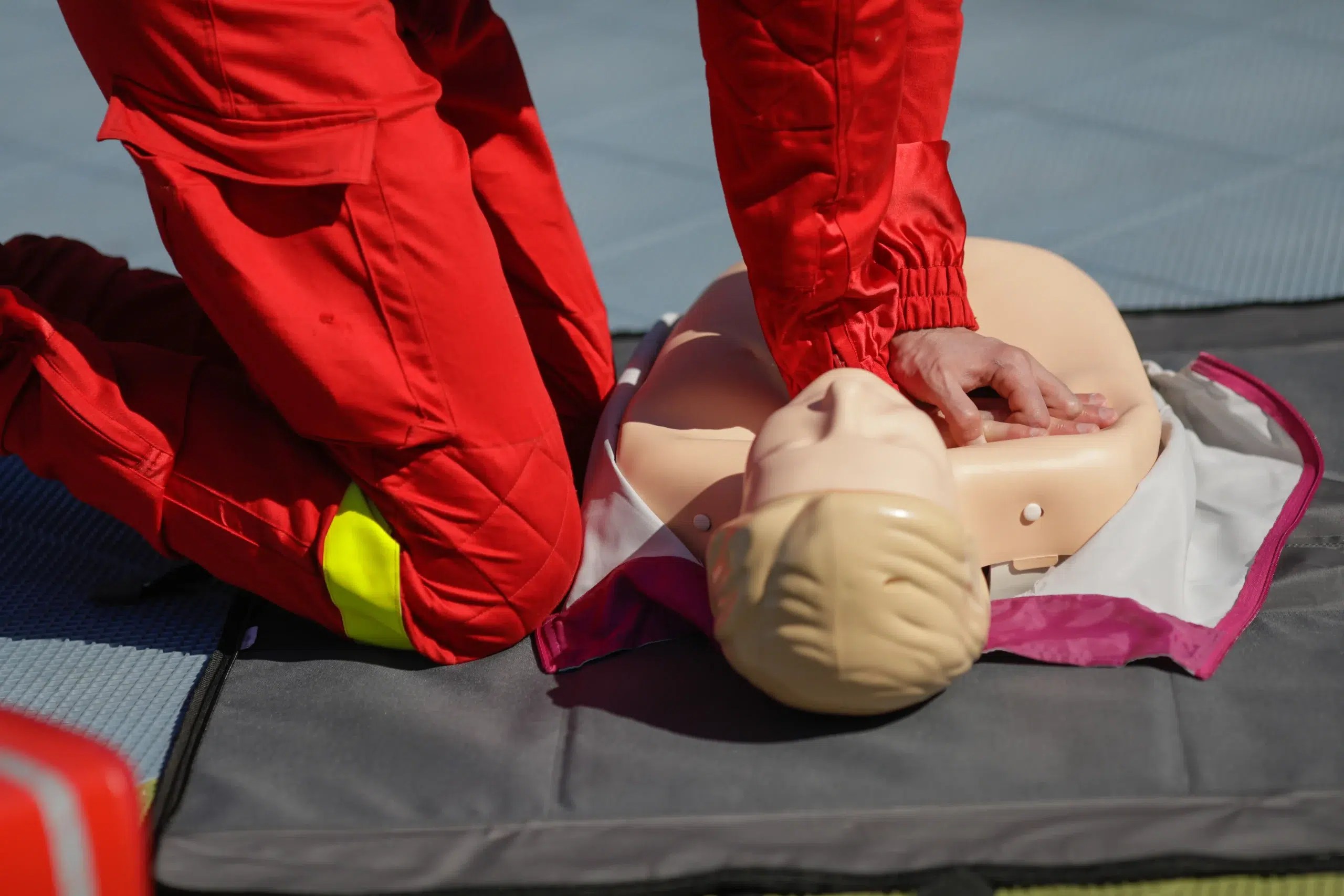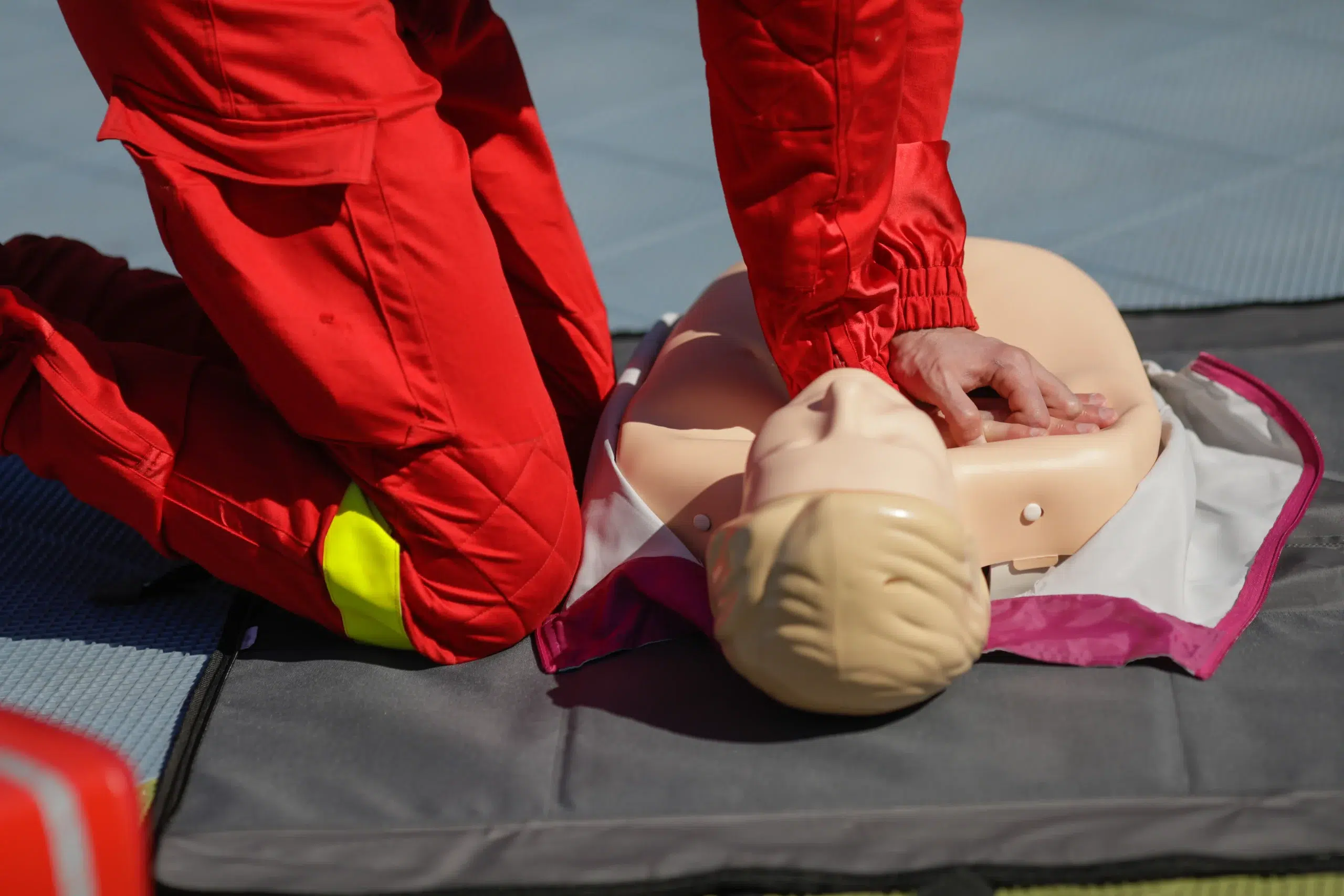In medical emergencies, seconds can matter. Knowing CPR can give you the confidence to act quickly and potentially save a life. If you’re in San Jose and considering CPR training, this guide is for you. We’ll explore the different CPR certification courses available in San Jose, from basic CPR and First Aid to advanced certifications like BLS, ACLS, and PALS. We’ll also discuss the benefits of CPR certification, the qualifications needed to become a CPR instructor, and how to choose the right training provider. This guide aims to be your one-stop resource for CPR training in San Jose, providing you with the information you need to get certified and prepared for emergencies.
Key Takeaways
- CPR skills empower you in emergencies: Learning CPR, whether for personal or professional reasons, equips you to respond effectively to medical crises and potentially save lives.
- Find the right CPR training in San Jose: Explore various CPR certification courses, from basic to advanced levels, offered by providers like Safety Training Seminars and the American Red Cross, to match your specific needs.
- Stay current with CPR best practices: Maintain your certification and refresh your skills regularly to ensure you’re always prepared and confident in providing assistance.
What is CPR and Why Does it Matter?
CPR, or Cardiopulmonary Resuscitation, is a lifesaving technique used when someone suddenly stops breathing or their heartbeat stops. This can happen due to a heart attack, drowning, or other medical emergencies. CPR helps maintain vital blood flow to the brain and other organs until paramedics arrive. Learning CPR can significantly increase the chances of survival for someone experiencing cardiac arrest. Immediate CPR can double or even triple a victim’s chance of survival, giving them a fighting chance until professional help arrives. CPR training equips people with the skills and confidence to respond effectively under pressure. It’s an essential skill for healthcare professionals, caregivers, and anyone who wants to be prepared for the unexpected. CPR certification empowers everyday people to save lives and make a real difference when it matters most.
CPR Courses in San Jose
Finding the right CPR course can feel overwhelming with so many options. This section breaks down the different types of CPR certification available in San Jose, so you can choose the best fit for your needs.
BLS
Basic Life Support (BLS) certification is crucial for healthcare providers and anyone in a medical field. It covers core life-saving skills for adults, children, and infants, including CPR, AED use, and relief of choking. The American Heart Association’s RQI program is a popular option for BLS certification, offering a blended learning approach with online coursework and in-person skills sessions. This flexible format makes it easier for busy professionals to fit training into their schedules. The program emphasizes high-quality CPR skills and regular practice.
ACLS
Advanced Cardiovascular Life Support (ACLS) builds upon the foundation of BLS. This ACLS course is designed for healthcare professionals who manage cardiopulmonary arrest and other cardiovascular emergencies. It covers advanced airway management, pharmacology, and team dynamics. ACLS certification is often a job requirement for doctors, nurses, paramedics, and other healthcare providers.
PALS
Pediatric Advanced Life Support (PALS) focuses on the specialized needs of infants and children. This PALS training equips healthcare providers with the skills to recognize and respond to life-threatening emergencies in young patients. PALS certification, like ACLS, is typically required for those working in pediatrics, emergency medicine, or intensive care.
Heartsaver CPR/AED
Heartsaver CPR/AED courses are designed for anyone who wants to learn CPR and how to use an automated external defibrillator (AED). These courses are valuable for teachers, coaches, parents, and anyone interested in being prepared for an emergency. Heartsaver courses cover adult, child, and infant CPR, AED use, and choking relief. You don’t need a healthcare background to take a Heartsaver course.
First Aid
While not strictly CPR, First Aid training often goes hand-in-hand with CPR certification. First Aid courses teach you how to respond to a wide range of medical emergencies, from minor cuts and burns to more serious injuries like fractures and allergic reactions. Learning basic first aid can empower you to provide immediate care until professional help arrives.
Top San Jose CPR Training Providers
Finding the right CPR training provider is an important first step. Several excellent organizations and training centers offer CPR certification in San Jose. Here are a few options to consider:
Safety Training Seminars
Safety Training Seminars is a woman-owned American Heart Association (AHA) Training Center offering a range of CPR and first-aid courses in San Jose. They provide daily certification courses, including BLS, ACLS, PALS, and Heartsaver CPR/AED. With a dedicated customer service team, they strive to offer high-quality training and convenient scheduling. They also have a low price guarantee.
American Red Cross
The American Red Cross is a well-known provider of CPR and first-aid training. They offer various courses in San Jose, including in-person and blended learning options (online coursework combined with in-person skills sessions). This format allows participants to choose what best suits their schedules and learning preferences. You can explore their course catalog to find a class near you.
San Jose CPR Training Center
The San Jose CPR Training Center offers AHA-certified classes in CPR, BLS, ACLS, PALS, and First Aid. With multiple locations in San Jose, they aim to make finding a class convenient for local residents. They focus on providing comprehensive training that meets AHA guidelines.
CPR Select
CPR Select, and similar providers like Morgan Hill CPR Classes, offer various CPR certifications, often with flexible scheduling and competitive pricing. These providers can be a good option for those seeking convenient and affordable training.
Hospitals and Community Centers
Many hospitals and community centers in San Jose also offer CPR training courses. These courses are often taught by experienced healthcare professionals and can be a valuable resource for individuals seeking certification. Contact your local hospital or community center for upcoming course schedules and registration information.
What Happens in a CPR Training Course?
CPR training courses blend classroom learning with hands-on practice, so you’ll understand the why and how of CPR. Whether you’re a healthcare professional needing BLS certification or taking a CPR course for personal interest, the goal is to equip you with the skills to respond confidently in an emergency. Many CPR training providers in San Jose offer bilingual classes, often in Spanish and Vietnamese. While online CPR training offers flexibility, in-person classes provide crucial hands-on practice and personalized feedback from certified instructors.
Hands-on Practice
CPR courses aren’t just lectures. You’ll spend a significant portion of your training practicing on mannequins. This hands-on experience helps you develop muscle memory and get comfortable performing compressions, using an AED, and giving rescue breaths. Instructors provide real-time feedback, correcting your technique and answering your questions. This personalized instruction is invaluable for building confidence and ensuring you’re prepared for a real-life emergency.
Classroom Instruction
Instructors explain the science behind CPR, covering topics like how it affects blood circulation and why each step is essential. You’ll also learn to recognize the signs of a cardiac arrest, when to call 911, and how to assess a situation safely. Safety Training Seminars offers a variety of in-person CPR and First Aid courses in San Jose. They hold daily certification courses and provide support through their customer service team.
Certification
Upon successful completion of the course, including written and practical exams, you’ll receive a certification card. This card validates your CPR skills and knowledge to potential employers, schools, or organizations requiring proof of certification. Safety Training Seminars offers a range of American Heart Association (AHA) certified courses in San Jose, including BLS, ACLS, PALS, and First Aid. This certification is typically valid for two years, after which you’ll need to take a recertification course to stay current.
Skills You’ll Learn
CPR training equips you with a range of life-saving skills. You’ll learn how to perform chest compressions, deliver rescue breaths, and use an automated external defibrillator (AED). Beyond the technical skills, you’ll also develop crucial soft skills like clear communication, teamwork, and staying calm under pressure. Safety Training Seminars offers CPR courses in San Jose designed to give you the skills and confidence to respond effectively during emergencies. These skills empower you to act quickly and effectively in a crisis, potentially making a life-saving difference.
CPR Training Costs in San Jose
CPR training is an investment in your skills and the well-being of your community. Understanding the factors that influence pricing can help you find a course that fits your budget and learning goals.
Factors Affecting Price
Several factors contribute to the overall cost of CPR training. The type of certification you need plays a significant role. Courses like Basic Life Support (BLS) for healthcare providers typically have a different pricing structure than CPR/First Aid courses designed for the general public. Your preferred learning style also matters. In-person classes, online learning, and blended formats (combining online and in-person elements) each come with their own cost considerations. Finally, think about your schedule. Daily courses might be more intensive and potentially more expensive than weekend options.
Average Costs
CPR training in San Jose is generally affordable. Providers like Safety Training Seminars offer competitive rates, making these essential life-saving skills accessible. You can often find various certifications, flexible schedules, and transparent pricing structures to suit different needs and budgets. It’s always a good idea to check directly with training providers for the most up-to-date pricing information for specific courses.
Discounts and Promotions
Many CPR training providers offer discounts and promotions. For example, Safety Training Seminars frequently has special offers, including those for BLS renewal. Check their website for current promotions. Also, be sure to inquire about what’s included in the course fee. Some providers include training materials, while others may have additional costs for manuals or other resources. Clarifying these details upfront will help you accurately compare pricing.
Choose the Right CPR Course
Finding the right CPR course depends on your specific needs. Whether you’re a healthcare provider, need CPR training for work, or simply want to learn this life-saving skill, San Jose offers a variety of options. Let’s break down the different types of courses available:
For Healthcare Professionals
Healthcare professionals often need specific certifications to meet job requirements and maintain their licenses. For example, Basic Life Support (BLS) is a foundational course for many healthcare providers, covering core CPR skills, AED use, and basic airway management. Advanced Cardiovascular Life Support (ACLS) builds upon BLS, focusing on advanced techniques for managing cardiovascular emergencies. Pediatric Advanced Life Support (PALS) provides specialized training for responding to emergencies involving infants and children. These courses are crucial for doctors, nurses, paramedics, and other healthcare providers who need to respond effectively in critical situations. Check with your employer or licensing board to determine the specific certifications you need. Safety Training Seminars offers a range of American Heart Association certification courses to meet these professional requirements.
For Workplace Requirements
Many employers require CPR and First Aid certification for their employees. This is especially common in fields like education, childcare, and construction. Before signing up for a course, review your workplace’s specific requirements to ensure the course aligns with their standards. Some employers may require certification from a particular organization, such as the American Heart Association or the American Red Cross. Choosing the right course ensures you comply with workplace policies and equips you with the skills to handle emergencies on the job. CPR and First Aid training through Safety Training Seminars can help you meet these workplace requirements.
For Personal Interest
Even if CPR certification isn’t required for your job, learning CPR can be incredibly empowering. It prepares you to respond confidently in emergencies, potentially saving a life. If you’re a parent, caregiver, or simply someone who wants to be prepared, consider taking a CPR and First Aid course. These courses teach essential life-saving skills and provide the confidence to act in critical situations. You’ll learn how to recognize the signs of a cardiac arrest, perform CPR, use an AED, and provide basic first aid. Knowing CPR can make a real difference in the lives of your loved ones and your community.
CPR Instructor Qualifications
Want to teach CPR? It’s a rewarding path, and knowing the qualifications is the first step. Here’s what you’ll need.
AHA Certification
The American Heart Association (AHA) sets the standard for CPR training. Becoming an AHA-certified instructor means you’re aligned with these nationally recognized guidelines. Look for training centers like Safety Training Seminars, a woman-owned AHA Training Center offering various AHA courses, including BLS, ACLS, PALS, CPR, and First Aid in San Jose. This ensures you’re learning from a reputable source and receiving high-quality instruction.
Experience and Expertise
Certification is essential, but practical experience adds another layer of expertise. Real-world scenarios and hands-on practice make you a more effective instructor. The National Safety Council (NSC) emphasizes the importance of comprehensive training, including AED instruction, for its instructors. This highlights the value of well-rounded training that goes beyond the basics. For example, knowing how to react in various emergency situations or adapt your teaching style to different learning needs comes with experience.
Continuing Education
The medical field is constantly evolving, and CPR techniques are no exception. Continuing education is key to staying current with the latest guidelines. The AHA offers various BLS renewal options, including online courses and hands-on skills practice. This ongoing learning ensures your skills remain sharp and you can confidently teach the most up-to-date methods. Plus, staying informed about new research and developments in resuscitation science will make you a more knowledgeable and effective CPR instructor.
Benefits of CPR Certification in San Jose
Getting CPR certified offers several benefits, from career advancement to personal growth and community impact. Whether you’re a healthcare professional, work with children, or simply want to be prepared for emergencies, CPR training in San Jose can equip you with valuable, life-saving skills.
Career Advancement
For many healthcare providers in San Jose, BLS, ACLS, or PALS certification is a job requirement. Safety Training Seminars offers all of these AHA-certified courses, giving you the credentials you need to advance your career. The RQI program is a popular choice for medical professionals seeking a streamlined path to recertification.
Personal Preparedness
CPR training empowers you to respond confidently during emergencies. Knowing you can provide immediate assistance to a loved one or stranger can bring peace of mind. Safety Training Seminars designs its CPR courses to build both skills and confidence, preparing you to act quickly and effectively under pressure.
Community Impact
Learning CPR allows you to make a real difference in your community. By becoming certified, you become a valuable resource, able to provide assistance in critical situations. With flexible course options, including in-person, blended learning, and online formats, CPR and First Aid training is accessible to everyone. The comprehensive classes offered in Downtown San Jose ensure you’ll have a solid foundation in these life-saving techniques.
Maintain Your CPR Certification
Keeping your CPR skills sharp is essential for responding effectively in emergencies. This section covers how to maintain your certification and stay up-to-date with the latest guidelines. It’s easier than you think to stay current and prepared.
Renewal Requirements
CPR certifications typically expire every two years. This is because techniques and best practices can evolve, and regular renewal ensures you’re providing the most effective care. To stay certified, check with your certifying organization, such as the American Red Cross or the American Heart Association, for their specific renewal process. Many organizations offer streamlined renewal courses that focus on refreshing your skills, rather than repeating a full course. This makes staying current convenient and efficient.
Refresher Courses
Even if your certification isn’t due for renewal, consider taking a refresher course. These courses are a great way to brush up on your skills and boost your confidence. Safety Training Seminars in San Jose offers various CPR courses, including refreshers, to help you maintain your skills. Regular practice can make all the difference in your ability to respond effectively under pressure. Think of it like a tune-up for your lifesaving skills.
Staying Up-to-Date
The science behind CPR is constantly evolving. Staying informed about the latest research and recommendations is crucial for providing the best possible care. Organizations like the AHA regularly update their guidelines based on scientific evidence. Consider subscribing to newsletters or following relevant organizations on social media to stay informed about any changes in CPR techniques or protocols. Staying current ensures you’re prepared to handle emergencies with the most effective methods.
Common CPR Training Misconceptions
Let’s clear up some common misconceptions about CPR training. These myths can prevent people from learning this life-saving skill, so let’s debunk them:
“CPR is Only for Healthcare Professionals”
This is absolutely false. While healthcare providers frequently use CPR, anyone can benefit from knowing it. CPR is necessary when someone’s heart stops beating, which can happen anywhere. Whether you’re a teacher, parent, coach, or just someone who wants to be prepared, CPR training equips you to handle these emergencies. Learning CPR means you could save the life of a loved one, a stranger, or even a first responder.
“CPR is Too Difficult”
CPR training is designed to be straightforward and accessible. Certified instructors break down the steps into easy-to-understand segments, and you’ll get plenty of hands-on practice using mannequins. The goal is to build your confidence and competence. Choosing the right course type also makes a difference. A Heartsaver CPR/AED course focuses on essential skills for community members, while healthcare professionals pursue more advanced training like BLS or ACLS.
“Online CPR Training Isn’t Valid”
Online CPR training can be valuable, especially for learning the cognitive aspects of CPR. Some online programs incorporate virtual simulations. However, in-person training is essential for mastering hands-on skills and receiving feedback from an instructor. Many organizations require in-person training for official certification. Think of online CPR training as a helpful supplement or refresher, but hands-on practice is key for true preparedness.
“CPR is All About Mouth-to-Mouth”
Modern CPR emphasizes chest compressions. While rescue breaths can be part of the process, the priority is maintaining blood circulation through compressions. High-quality chest compressions are critical for increasing the chances of survival. AHA-certified courses like those offered by Safety Training Seminars keep you updated on the latest CPR guidelines, ensuring you’re equipped with the most effective techniques.
Related Articles
- Why CPR is Important in Healthcare – San Jose CPR Classes
- CPR in San Jose: Your Guide to Classes & Certification – San Jose CPR Classes
- History of CPR & San Jose CPR Classes – San Jose CPR Classes
- CPR Myths You Need to Stop Believing – San Jose CPR Classes
- 25 Surprising CPR Facts: San Jose CPR Class Guide – San Jose CPR Classes
Frequently Asked Questions
What’s the difference between BLS and Heartsaver CPR?
BLS (Basic Life Support) certification is generally for healthcare providers and those in medical fields, covering CPR for adults, children, and infants, along with AED use and choking relief. Heartsaver CPR/AED courses are designed for anyone wanting to learn CPR and AED use, regardless of their background. They also cover adult, child, and infant CPR and choking. BLS goes into more depth and is often a job requirement for healthcare professionals.
How do I choose the right CPR class in San Jose?
Consider your specific needs and goals. If you’re a healthcare professional, you’ll likely need BLS, ACLS, or PALS certification. If CPR is a workplace requirement, check with your employer for their preferred certifying organization (AHA or Red Cross) and any specific course requirements. For personal interest, a Heartsaver CPR/AED course is a great option. Think about your schedule and learning style, too. Some providers offer weekend or evening classes, online components, or blended learning formats.
How much does CPR training cost in San Jose?
The cost varies depending on the course type, format (in-person, online, or blended), and the training provider. BLS for healthcare providers usually has a different price structure than Heartsaver courses. Many providers offer discounts, so check their websites or contact them directly for the most up-to-date pricing. Safety Training Seminars, for example, often has special offers and a low-price guarantee.
What can I expect during a CPR training class?
Expect a mix of classroom instruction and hands-on practice. You’ll learn the science behind CPR, how to recognize cardiac arrest, and the steps to take in an emergency. A significant portion of the class involves practicing on mannequins, allowing you to develop muscle memory and receive feedback from instructors. You’ll also learn how to use an AED. Upon successful completion of the course, including written and practical exams, you’ll receive a certification card, typically valid for two years.
How can I maintain my CPR certification after I get it?
Most CPR certifications are valid for two years. To renew, you’ll need to take a recertification course through your certifying organization (AHA or Red Cross). Even if your certification isn’t expiring soon, consider taking a refresher course to keep your skills sharp. Stay up-to-date with the latest CPR guidelines by subscribing to newsletters or following relevant organizations on social media. Staying current ensures you’re prepared to provide the most effective care in an emergency.


